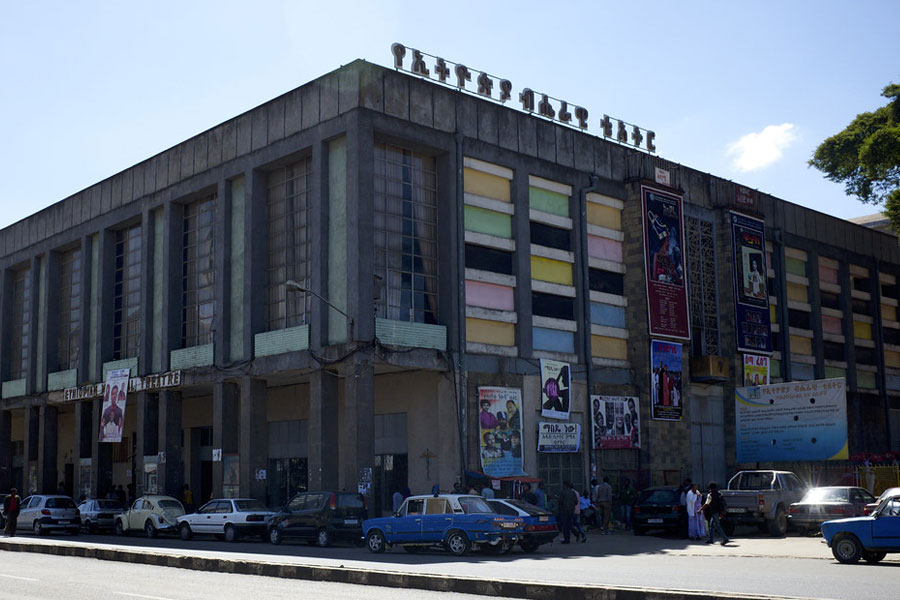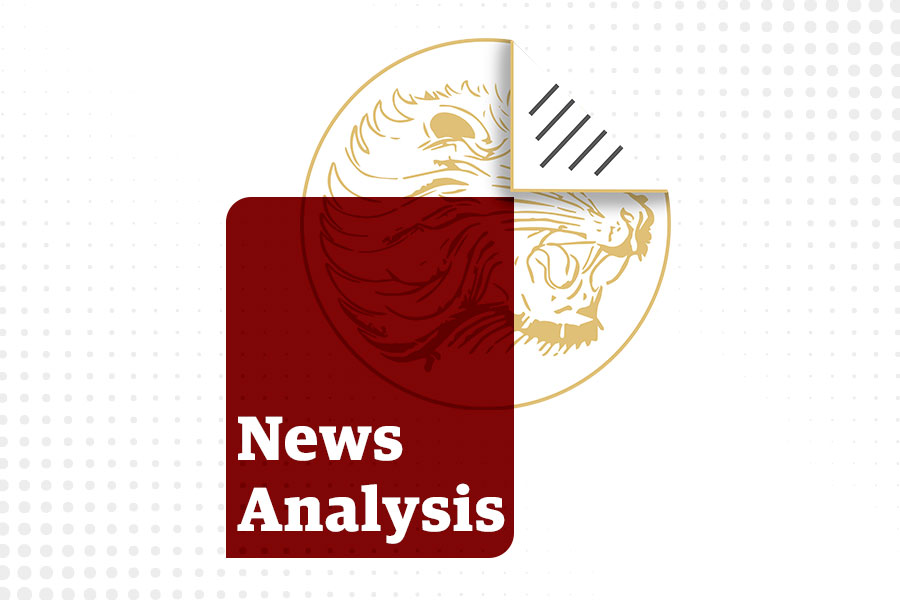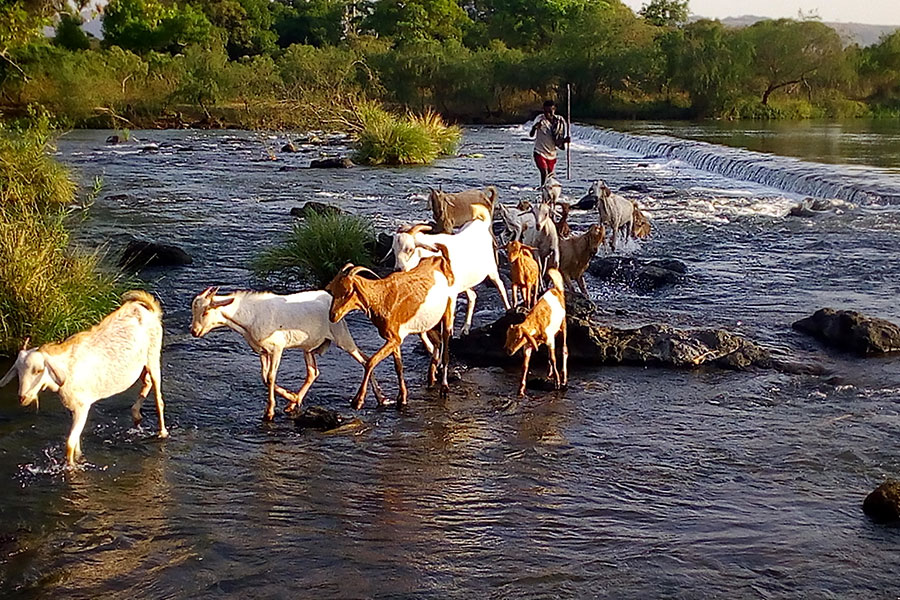
View From Arada | Sep 24,2022
Jun 7 , 2020
By Lemma Teklehaimanot
The opportunities of the Nile basin for each riparian country are enormous. Through cooperation and integration, all countries can benefit and improve their economic circumstances - a fact Egypt would be wise to remember, writes Lemma Teklehaimanot (lemma.t@gmail.com).
The Nile is the unmanaged resource of 11 countries, and its opportunities should be fully utilised by the people of these countries for their common good. But the people have to understand and be able to appreciate the problem that Ethiopia and Egypt have locked horns over, a problem that could overflow and engulf the other riparian countries of the Nile Basin unless wisdom prevails in the Egyptian court.
Understanding this is a great deal more crucial to Egypt than anyone else. Egypt would do far better if it recognised that the Basin countries, not Britain, are the rightful stakeholders of the Nile River. Referring to colonial-era agreements is tantamount to rejecting the freedom of all the other countries in the river’s Basin.
Britain is not a stakeholder in a real sense, though all countries in the world can be considered an interested party if we consider the issue in the context of peace and stability in the region. Egypt wants and has been trying to play the smartest card, but the timing and circumstances on the ground call for a wiser strategy. Egypt has to recognise realities on the ground and accept the changes that have been blowing over the region for over six decades - this would be wise.
The opportunities of the Basin are enormous. It has a great deal to offer, and through cooperation and integration, all the countries could benefit - that is, if the leaders can act wisely. There are things that each country has to do and whatever is done in any of these countries could add value and bring prosperity to all.
When Ethiopia builds dams, there are a number of benefits that will come. Primarily, water is conserved for use in a regulated manner for a longer period than if there is no dam.
Why did Egypt build The Aswan Dam?
It was not meant to be a monument. It is serving Egypt by making power generation, irrigation, tourism, transportation, fisheries and recreation possible. When Ethiopia builds a dam, Egypt should be quick to see the benefits that are coming at a minimum expense to its people and encourage and support Ethiopia in its efforts.
Egypt should also recognise the benefits that will come with more dams being built in the highlands of Ethiopia and be enthusiastic about the additional opportunities. The capacity of the regulated flow from the GERD will be ensured with the additional storage in the upstream dams on the Nile itself and the tributaries.
Egyptian professionals engaged in hydro-politics cannot be said to have failed to realise this. But Egyptian leaders have long considered anything built on the Nile outside of its borders to automatically be harmful. Building these structures in the upstream riparian countries will enhance water and soil conservation capacities and will guarantee a sustainable water supply to the downstream countries and will not pose any significant threats.
This is especially crucial when dealing with droughts. Throughout the ages, there have been years of plentiful rain followed by years of drought. Sometimes the rains extend for longer years than we need them to and we have floods that destroy livelihoods. At other times, we have droughts extending over many years and consequently causing havoc.
Creating adequate storage to get through years of drought with minimal impact and years of heavy rains by storing the water and not suffering from the consequences of flooding is critical. The only means of doing this would be to build enough dams that regulate the flow of the Nile to our collective benefit.
It is also the case that by developing the necessary infrastructure, the Nile could be used to develop tourism across the riparian countries, where different cultures and fauna and flora could be explored. It would be a basin of peace and stability, bustling with economic development. It can benefit the basin countries even more than the Rhine and the Danube are doing in Europe.
But do we have the leaders to achieve this?
Egypt has been the major beneficiary of the Nile thus far. It has demonstrated absolute disregard for the well-being and development agenda of its Southern neighbours. The hegemonic worldview Egypt has taken over the Nile to Ethiopia’s detriment, which generates over 80pc of the water, is shortsighted and tyrannical. Egypt is acting in bad faith.
What Ethiopia is doing is utilising the natural resources within its borders, while at the same time ensuring that this does not come at the expense of the benefits afforded by the Nile to the lower riparian countries.
Egypt has to go back to the drawing board and revisit its wrong assumptions and try to rebuild its ruined relationships with the basin countries. This will certainly require a lot of goodwill, courage and honesty from its leaders. The Egyptian people have been fed lies about its non-existing rights at the expense of the other Nile Basin countries. They need to know the truth that the other riparian countries are not their adversaries but their partners for integrated regional development.
Egypt today is using the Nile in countless ways. But all the riparian countries have every right to benefit from the Nile's boundless resources and opportunities in an equitable manner.
This can only be realised through negotiations, using the already existing institutions such as the Nile Basin Initiative. These institutions need to be strengthened and not be undermined. The times have changed and decisions will no longer be made by former colonial powers such as Britain or even the United States. If this problem is settled, it will be the African countries that benefit. It is because of this that Egypt recognises the power these countries have as the sources and contributors to the Nile.
We must be allowed to build dams on the major tributaries and conserve water resources and make them available for irrigation, power, navigation, fisheries and our water supply needs.
Devising a mechanism for reaching and sustaining an equitably beneficial deal will be challenging. With current technology and enough goodwill and trust between the nations, we can integrate the operations of the dams to maximise the benefits and minimise the harm to any one country.
PUBLISHED ON
Jun 07,2020 [ VOL
21 , NO
1050]


View From Arada | Sep 24,2022

News Analysis | Nov 20,2021

Commentaries | Aug 16,2020

Viewpoints | Nov 06,2021

Radar | Feb 06,2021

Viewpoints | Jan 07,2022

Radar | Nov 16,2024

Radar | Mar 07,2020

Radar | Nov 21,2018

My Opinion | May 31,2020

My Opinion | 131548 Views | Aug 14,2021

My Opinion | 127903 Views | Aug 21,2021

My Opinion | 125879 Views | Sep 10,2021

My Opinion | 123509 Views | Aug 07,2021

Dec 22 , 2024 . By TIZITA SHEWAFERAW
Charged with transforming colossal state-owned enterprises into modern and competitiv...

Aug 18 , 2024 . By AKSAH ITALO
Although predictable Yonas Zerihun's job in the ride-hailing service is not immune to...

Jul 28 , 2024 . By TIZITA SHEWAFERAW
Unhabitual, perhaps too many, Samuel Gebreyohannes, 38, used to occasionally enjoy a couple of beers at breakfast. However, he recently swit...

Jul 13 , 2024 . By AKSAH ITALO
Investors who rely on tractors, trucks, and field vehicles for commuting, transporting commodities, and f...

Jun 28 , 2025
Meseret Damtie, the assertive auditor general, has never been shy about naming names...

Jun 21 , 2025
A well-worn adage says, “Budget is not destiny, but it is direction.” Examining t...

Jun 14 , 2025
Yet again, the Horn of Africa is bracing for trouble. A region already frayed by wars...

Jun 7 , 2025
Few promises shine brighter in Addis Abeba than the pledge of a roof for every family...

Jun 29 , 2025
Addis Abeba's first rains have coincided with a sweeping rise in private school tuition, prompting the city's education...

Jun 29 , 2025 . By BEZAWIT HULUAGER
Central Bank Governor Mamo Mihretu claimed a bold reconfiguration of monetary policy...

Jun 29 , 2025 . By BEZAWIT HULUAGER
The federal government is betting on a sweeping overhaul of the driver licensing regi...

Jun 29 , 2025 . By NAHOM AYELE
Gadaa Bank has listed 1.2 million shares on the Ethiopian Securities Exchange (ESX),...